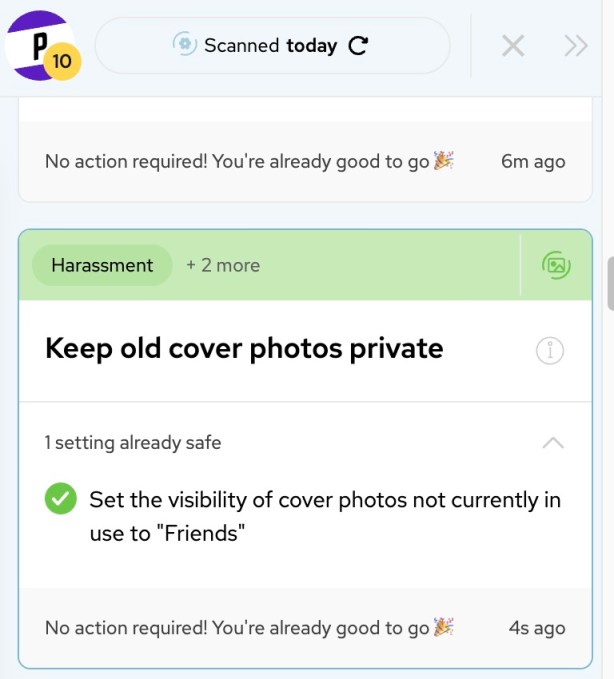After losing access to Twitter’s API, Block Party is focusing on privacy

[ad_1]
Bloc Partya startup developed by a software engineer and technology diversity advocate tracy chu, It was among the victims of Twitter’s (now known as X) API changes earlier this year, forcing it to turn around its business. At the SXSW conference in Austin this weekend, Chou gave a glimpse at what Block Party is doing now with its new product. Privacy partydesigned to help people more easily navigate and adjust privacy settings across social networks like Facebook, Instagram, LinkedIn, Reddit, X, and more.
The original version of Block Party was built on top of the Twitter API to automate the process of blocking bad actors, trolls, harassers, and more. The company raised $4.8 million in seed funding in 2022, a year after launch, with the aim of expanding automated blocking to more platforms.
However, Twitter’s API crackdown meant that Block Party’s ability to operate was immediately affected. This product, now discontinued, has since been rebranded as Block Party Classic.
Chu addressed the product’s demise at SXSW, saying that Block Party Classic allowed Twitter users to filter “all the spam and harassment from their mentions” and made Twitter more usable and more fun without being a full-fledged content moderation solution (because the content itself remained on the Twitter platform. Instead, From that, it worked like middleware, she said.
“Unfortunately, changes in Twitter ownership also resulted in us losing access to the API,” Zhou explained.
“Regulation that requires open APIs will allow us to bring them back, without submitting to the whims of an erratic owner or changing business trends and priorities. More generally, it will open up markets and consumer choice for social media experiences across many platforms,” she added.
Given the unknown future of API regulation, the company is focused on moving forward with the development of the Privacy Party.
Chu said the idea for the new product came from talking to newsroom security teams who wanted more tools to help their journalists stay safe online.
“In addition to being subjected to a lot of harassment, journalists sometimes have to face threats such as defamation, stalking, or… [and] Death threats. She noted that personal social media creates a lot of vulnerable spaces, so the security recommendation is always to secure things.
Other people may simply want to clean up their social media profiles to prevent old photos and posts from coming back to haunt them or because they were from a different era. For example, college party photos probably shouldn’t be shown to potential employers.
However, going through security settings on different platforms is time-consuming, tedious and complicated. Platforms often make their user interface and experience unwieldy, or change the location of settings too often, to prevent users from securing their valuable data or to please regulators.
Privacy Party will also act like middleware here, allowing users to interact with platforms and services to adjust their privacy settings with fewer clicks.
In one example shown at SXSW, Block Party’s head of product design Deonne Castaneda explained that it takes at least 6 clicks on Facebook to find the setting to make one photo album private.
“It was very clear that there was an unmet privacy need for this kind of image control and protection that saves time and effort,” she said.
The way the privacy policy works is by providing recommendations to users for different social media platforms.
In its beta form, the browser extension will customize its recommendations based on users’ current settings. The extension will navigate through Facebook, or another social app, to learn about your settings through a scanning process that runs in the background. You’ll keep your browser tab open while the scan is complete, then you’ll receive an alert when it’s finished. (In some cases, scanning may be paused due to two-factor authentication needs.) Then, you can review your settings — such as the content you’re tagged in, or the public nature of your photos and posts, and you’re given the ability to change the settings to be more secure or override them, if you prefer.
The extension also focuses on other areas that may enable bad actors or stalkers, such as who can contact you, who can see your activity, what apps can access your data, who can see personal information such as your location or hometown, which older content is available and to whom, And more. As you make changes, the Privacy Policy extension will update the settings for you. It’s like having a privacy expert walking you through the different settings and giving you feedback on what to change and why.
The privacy policy beta works across Facebook, Instagram, LinkedIn, Reddit, Strava, X, and Venmo, with checks taking from just 1 minute to up to 8 minutes, depending on how many settings need to be locked. The browser extension is free to use while in beta.

Image credits: Bloc Party
“Each recommendation gives you transparency about what is happening with your data and the potential trade-offs involved,” Castañeda said. “They also provide the controls you have including an additional level of control that automates finding and fixing privacy settings for you.”
Chu did not say when Privacy Party will come out of beta, but it is free to use for now.
[ad_2]
Source link




